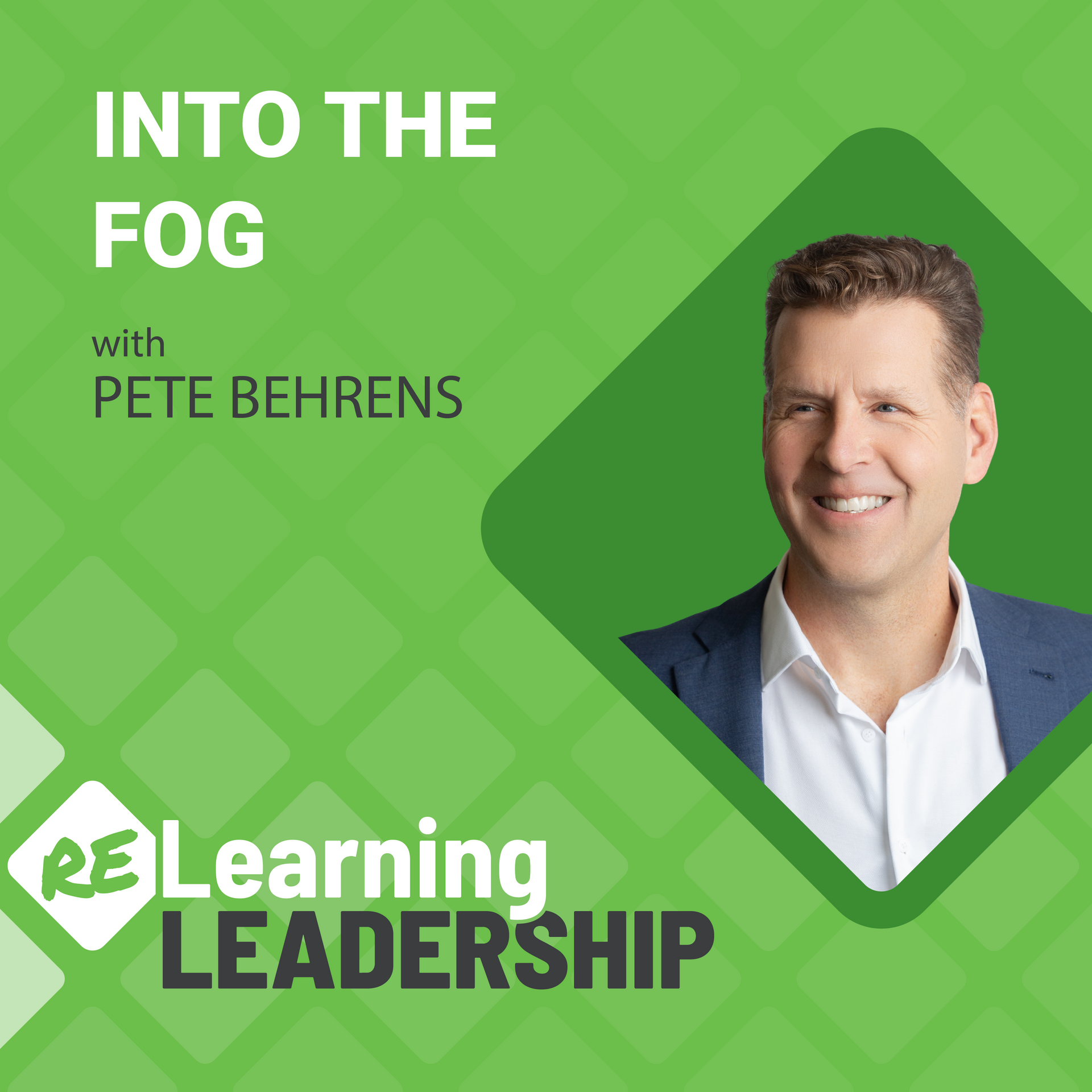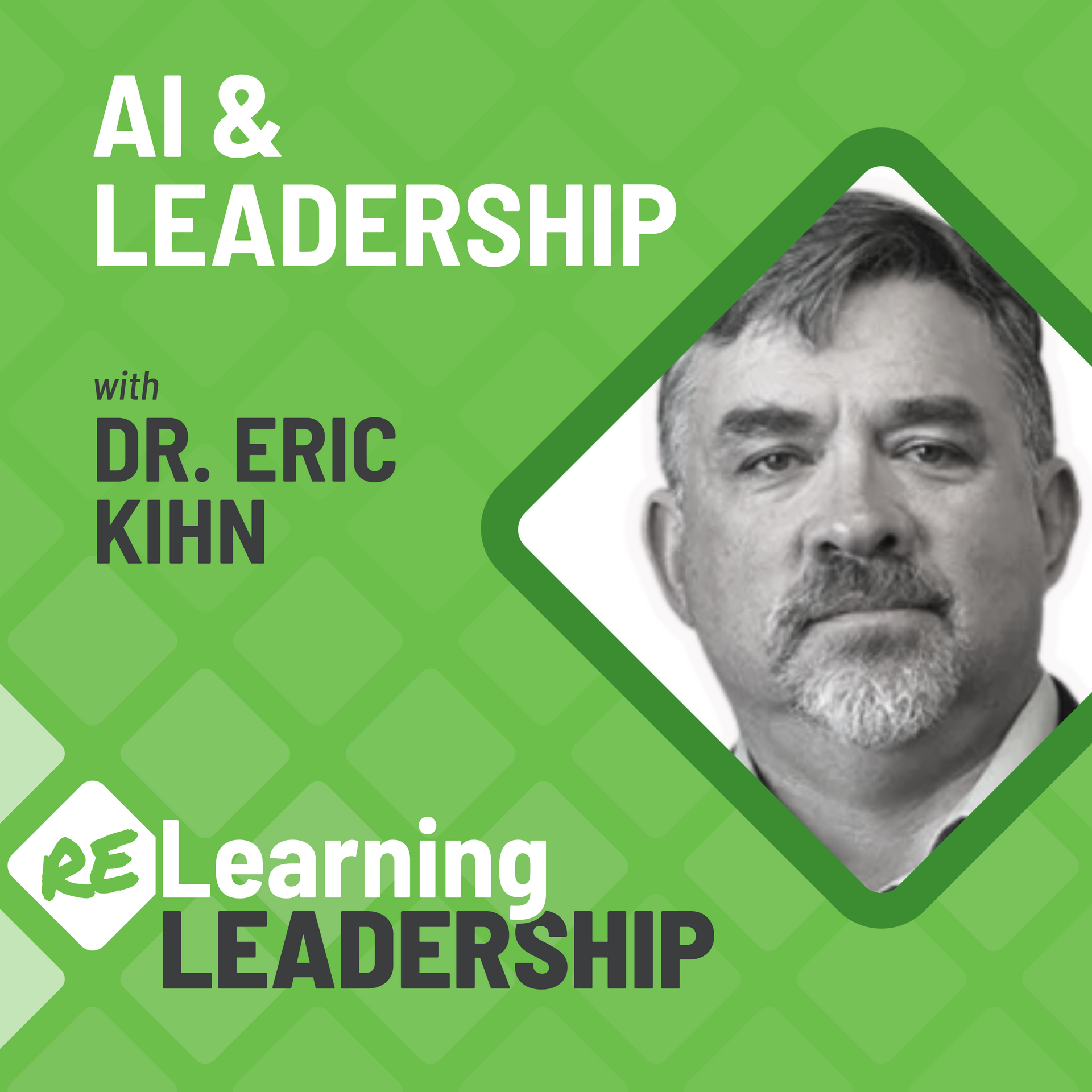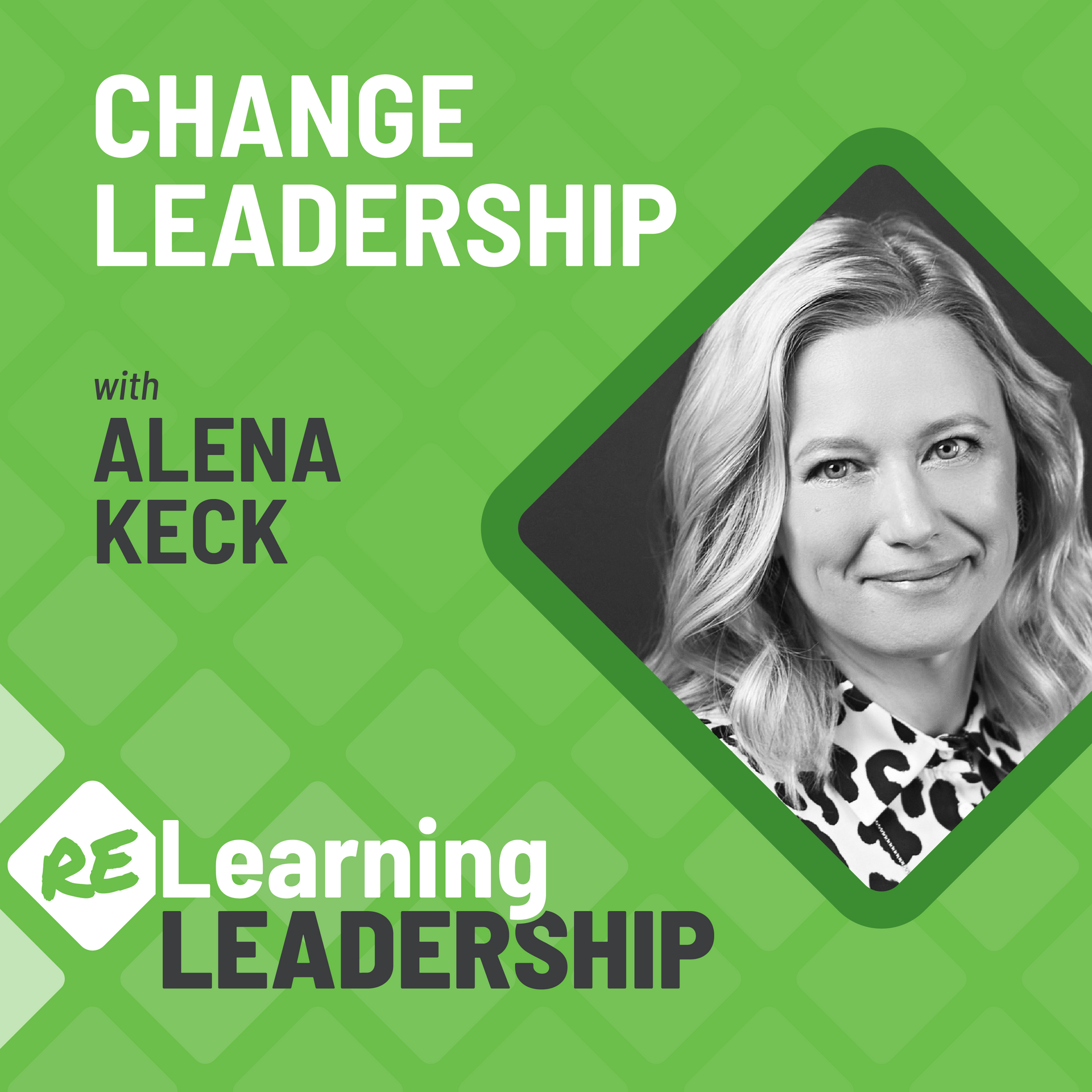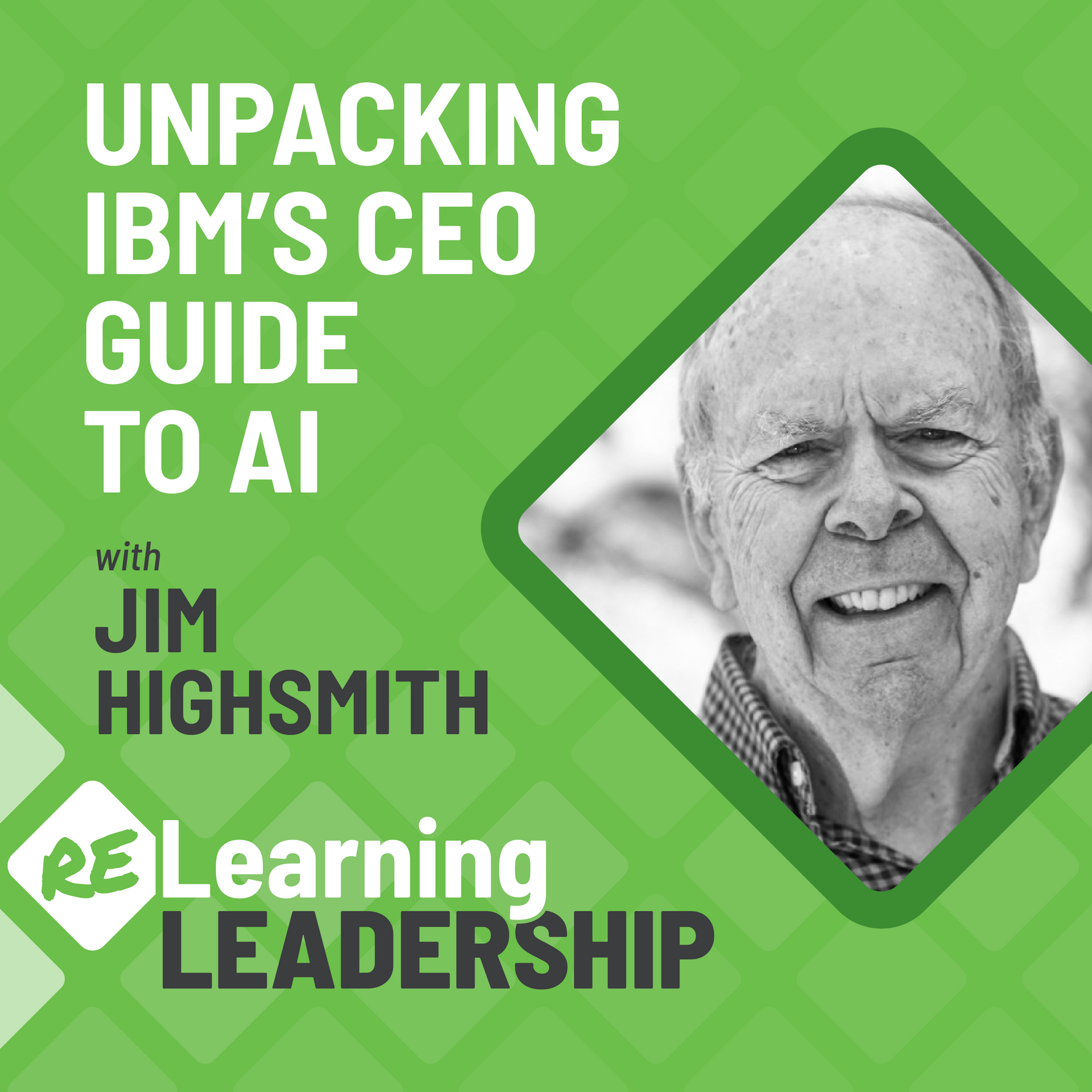20: A Time To Decide: Part 1 — In Honor of Ruth Behrens
Pete shares one of two reasons he paused the podcast in January
Pete experienced two lightning bolts life threw at him at the end of December - the end of his mother’s fight with cancer, and a catastrophic fire that displaced his family from their home.
In Part I, Pete shares walking alongside his mother’s end-of-life journey fighting leukemia and pneumonia. Through his journey, he hopes leaders are better able to connect to the human side of all of their employees, family members and friends.
Relearning from this episode…
This was an episode of reflection, rather than relearning. The goal in this episode is less about any particular leadership lesson, rather some processing of back-to-back hardships Pete experienced.
Reach out to a coworker, friend or family member to connect, inquire and listen with intent to their story. Behind every employee and relationship is another human on the other side who is likely dealing with a range of emotions from joy to sadness.
We Celebrate Joy Zimmerman’s Milestone
Joy Zimmerman, the creator of the music you hear on this podcast, is celebrating an award-winning album this summer. The Canvas Before Us reached Top #8 on the International Folk Chart!
When I first mentioned the idea of sharing one of her album tracks paired with episodes this season, Joy inquired how I might pair a few of the songs on her album with topics of leadership. One in particular she was curious about was her track,
Measure My Heart, as it reflects our journey through life as we come to its end.
Well, Joy, worry not. Your beautiful words, melody, and spirit in this song lift me up as I measure the life of my mother’s heart and all those she touched on her journey.
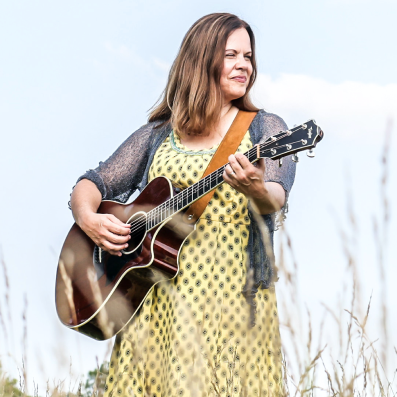
Episode Transcript
Pete Behrens:
What happens when life interrupts work?
Welcome to another episode of Relearning Leadership, where we explore a specific leadership challenge and break it down to help improve your leadership, your organization…and even your personal life.
Today, we highlight that last phrase “personal life”. In this two-part series, I bring to light how recent events in my personal life crashed into my work life, and this podcast series. Our regular listeners will notice a very different tone and energy as I walk through some very personal challenges.
My name is Pete Behrens. Thank you for listening. Let’s dive in.
Three weeks ago, we were forced to take a break in our schedule. Today I want to share how this story unfolded for us, not because it has a great leadership lesson, but rather because I need to share it for my own psychological health. I think it’s a good reminder that behind every employee is a human being. And while our work and jobs feel all-important, life beyond work will remind us of our humanness and the relative value of our work.
My personal life experienced two lightning bolts at the end of December, causing me to pause my work life so I could focus on myself and my family. And as this story is quite complex, it actually has two stories intertwined, and I feel that each of the individual stories needs to be unpacked separately. Thus, through two parts of this episode, I am going to walk you through what feels like two years of experience that happened in less than two weeks’ time. It feels like I have been drinking from the firehose, as they say. And while I wrote and reread this many times through my own tears, I hope to get through this recording of it without breaking down.
Following this two-part episode, we will return to our leadership stories along with expert analysis you have come to appreciate and support on this podcast. So I thank you for your patience in the interim.
Those who know me personally are aware that my mother was diagnosed with leukemia around her 86th birthday in June of 2021, about 6 months ago. This was a rather big shock from a number of perspectives. First, being naive about cancer, I assumed leukemia was primarily an impact on the young and didn’t realize how prevalent it was in the elderly community. Second, my mother was proud of her health and fitness, both mentally and physically, as she continued playing games and exercising and other activities late in her life.
However, throughout the previous year, she had been struggling with soreness in her hips and legs from what she perceived was a result of a recent car accident. After a year of searching, doctors finally identified the leukemia in her latest blood work. And while I don’t know all of the technical medical language, it reached an almost acute stage, which the doctors were quite concerned about. So, without treatment, she would not likely survive 3 months.
She was destined to fight her leukemia and chose treatment, which, for an 86-year-old, doesn’t mean beating it. Rather, it means to keep it at bay and allow her some more time with her family and friends. She agreed to monthly chemo treatments and weekly lab tests. Each week brought hope for improved blood results and frustration as she needed blood transfusions to keep her at a bare minimum survival-level. For those who don’t know, like me early on, leukemia is cancer of the blood, essentially attacking good blood cells, not letting them mature and to carry oxygen, fight infections, and do other important work in the body. So this left her weak, sore, and tired most of the time.
Even through her sickness, she was determined to drive herself to appointments. However, my sister Rebecca and I were even more determined to manage that for her. I told her the truth, that this was a time for me to spend with her. Whether it was driving in a car back and forth to her appointments or sitting during her blood transfusions. Most people I know don’t want to talk about death or dying. I mean, who does? I am no different. However, her sickness offered me an opportunity to more explicitly and openly talk to her about it. And to ask her about her memories and life experiences that I simply assumed or didn’t know as a child growing up.
She would also listen to these podcasts, when she felt up to it. In my first episode this season, I Wasn’t Born a Leader, she reminded me that I was wrong when I said that I wasn’t a leader as a child. She said that I was the one who had got the neighborhood kids together to play games. While I remember playing games in our yard and our street, I didn’t remember that I was the instigator of them. She remembered it differently.
We also got to talk about death and dying. It was hard on her at the beginning because her deteriorating physical condition didn’t match her sharp mental condition. At one point, I asked how young she “felt”. She said in her head she was 60, but her body felt past 90. I think we can all relate to that! She wasn’t ready to let go, as her expectations didn’t match her reality.
I wasn’t ready to let go either and appreciated the dedicated time I got to spend with her. My positive outlook actually appreciated her sickness as it “forced” me to connect with her on a different level, one we never reached when she was healthier. And when she was out all day receiving blood transfusions, I used some of this time to connect more deeply with my father as well. Why don’t we get more real with people during normal times? And why is it so hard to talk about hard things?
Her six month checkup was a critical decision point in her treatment. In early December, doctors performed a second bone biopsy to see if the chemo treatments were making any progress. They weren’t. In fact, her numbers were down, indicating the disease was winning. The doctor provided her one additional chemo “hail mary” (as I saw it), in an attempt to turn the tide, but it meant increasing her regimand and adding four “horse pills” (as she called them) every day. She would also require more frequent visits for lab work. Once again, while she was waning under the fatigue, she chose to fight.
We were fortunate to spend Christmas eve dinner with my mom and dad. And Rebecca and her husband Dale spent Christmas day dinner with them as well. However, by the next day, during a routine lab visit, they noticed an unusual high fever and diagnosed her with pneumonia. She was immediately placed in the ER and fed antibiotics. During the next two days, I was unable to visit due to strict COVID protocols. However, Rebecca was with her at the hospital 24/7.
On December 29, after a very difficult night, my mother chose to stop treatment - all treatment. Stop fighting pneumonia and leukemia. She said her body was tired and she wanted to have some time to visit family and die on her own terms. I was proud of her strength and her awareness to recognize what she needed and what her body was telling her. I was also proud of Rebecca for helping her talk through that most difficult decision. We had a tearful phone call from her hospital bed with hospice nurses verifying her decision and outlining the next steps on her journey.
That evening, she was transferred to my sister’s house for home hospice care. The next day, on December 30th, I took my father over to see her. For the past few years, my father has been in some cognitive decline. Following a fall and hitting his head, he has signs of early dementia, hearing loss, and separation. So while he is always physically present, he is in and out from an awareness perspective. So while my sister was in the hospital with my mother, I would visit my father to check in with him. And during those conversations, he would often confuse her pneumonia with leukemia and ask when she was coming home. And that evening when my mother was transferred to my sister’s home for hospice care, I feared the conversation with my dad about how to tell him mom wasn’t getting better and that she likely wouldn’t return home. But I wasn’t sure how much he understood.
The next morning, I did. That morning, when I went to pick him up to take him to see my mom, I noticed something in his pocket. It was a book of prayers and psalms. My dad is a retired Lutheran pastor. As I sat him down next to my mother’s bed, I stayed in the kitchen to listen to them. My mom asked him if he understood her choice not to continue treatment. She told him that it meant he would need to move because he couldn’t live on his own. He said that was OK because she was moving too - to God’s Kingdom. As their dialogue quieted, I asked dad what he brought with him. He took out the book and asked mom if she would like him to read to her. She said that would be nice.
As I sat next to them, my dad read Psalm 23 to her as she closed her eyes and listened peacefully.
Bill Behrens:
Psalm 23. Do you know that?
Ruth Behrens:
Of course.
Bill Behrens:
Shall I read it for you?
Ruth Behrens:
Sure.
Bill Behrens:
Okay.
The Lord is my shepherd. Can you say it with me, or do you want me just to read it? Just to read it?
Ruth Behrens:
Yes.
Bill Behrens:
Okay.
The Lord is my shepherd; I shall not want. He maketh me to lie down in green pastures, beside the still waters. He restoreth my soul: he leadeth me in the paths of righteousness for his name’s sake. Yea, though I walk through the valley of the shadow of death, I will fear no evil; for thou art with me; thy rod and thy staff they comfort me. That sound good?
Ruth Behrens:
Yes.
Bill Behrens:
Okay. I’ll read some more.
Pete Behrens:
He continued onto a few less recognizable psalms and prayers. When he returned to repeat Psalm 23, my mom stopped him, and she said,
“You already read that one!” I chuckled under my tears, as I’m doing now, in this most intimate moment. I could only hope that everyone in the world has someone like my dad, who can provide so much comfort at a time of so much pain and suffering. And the fact that, while I didn’t tell him that she was dying, he knew. It was an incredible reminder of how powerful the human spirit is, even as we might appear weak, confused, or unaware.
On December 30th and 31st, my mother was able to visit personally, or over video chat, with much of her family. While she was weak and on oxygen, she remained lucid and aware. She remembered small details, she gave us advice, she made sure we knew what we needed to take care of dad. And she asked for our permission to let go. It was interesting to see how her decision to let go was so intertwined with her family allowing her to make that decision. She was still mothering us through her journey of death.
The next morning, January 1st, 2022, was one of the most surreal moments of my life. My partner Jana woke up at 6AM and noticed a missed phone call from my sister at 1:30 in the morning. I looked at my phone and saw the same missed call. I assumed the worst. We called immediately to hear that my mother deteriorated quickly after midnight and was having a hard time breathing. However, she was still holding on.
We quickly woke up my father and attempted to reach my mom before she passed. Moving an 88-year-old from sleep out the door in a snowstorm with a 30-minute drive is not the fastest thing in the world, especially when you need to be fast. We reached the hospice center where my mother was by 7:30 in the morning. My mother’s eyes were closed. Her mouth was open, and she was breathing hard. Her arms and legs were cold. I pulled over another cover on her in an attempt to warm her up. My dad and Jana and Rebecca and I all gathered around her as my father began to read again to her.
Immediately, she began to ease her breath. She was listening. She was hearing and feeling us around her. As my dad continued to read, her breath slowed. Paused. Started and stopped briefly. I would look over to Rebecca and Jana as she was letting go. Then she stopped one last time. It was one of the most peaceful moments I have ever witnessed. So full of love. Our mother who took care of us for 50-60 years had passed. And then it dawned on me. She hung on. She waited for us. She struggled for over six hours while we slept that night. She didn’t want to die without us at her side. She held her strength until the very end, and she passed on her terms. It was her time to decide. She was an incredibly strong human, wife, sister, mother, and a nurse.
Thank you, mom, for being so strong for me when I know I didn’t deserve it often as a child. Thank you for being so calm when my situations seemed so difficult. Thank you for mothering me even as I was a young father, being a bit clueless in raising two boys. Thank you for accepting my partner Jana and her family into your own. Thank you for being our boys’ number one fan at musicals and sporting events. And thank you for being such a caretaker of everyone and everything you touched.
Thank you, listener, for taking the time to hear this story. Each of us carry personal stories of sadness, joy, fear, and hurt. And yet, we continue to show up at work as if nothing has happened. I encourage each of you to connect to someone you work with, check in with them, ask about their personal life, and listen intently to their story. Effective leadership is not a position; it’s a relationship with those we interact. I am hopeful this story enables you to connect to yourself and to interact with those you care about more meaningfully.
Thank you.
As you know, each episode this season, we are celebrating Joy Zimmerman’s award-winning album, The Canvas Before Us. When I first mentioned this to Joy earlier this season, she said to me that she wondered how I might pair a few of the songs on her album with topics of leadership. One in particular she was curious about was her track, Measure My Heart, as it reflects our journey through life as we come to its end.
Well, Joy, worry not. Your beautiful words, melody, and spirit in this song lift me up as I measure the life of my mother’s heart and all those she touched on her journey.
Thank you.
Explore:
Recent Episodes

